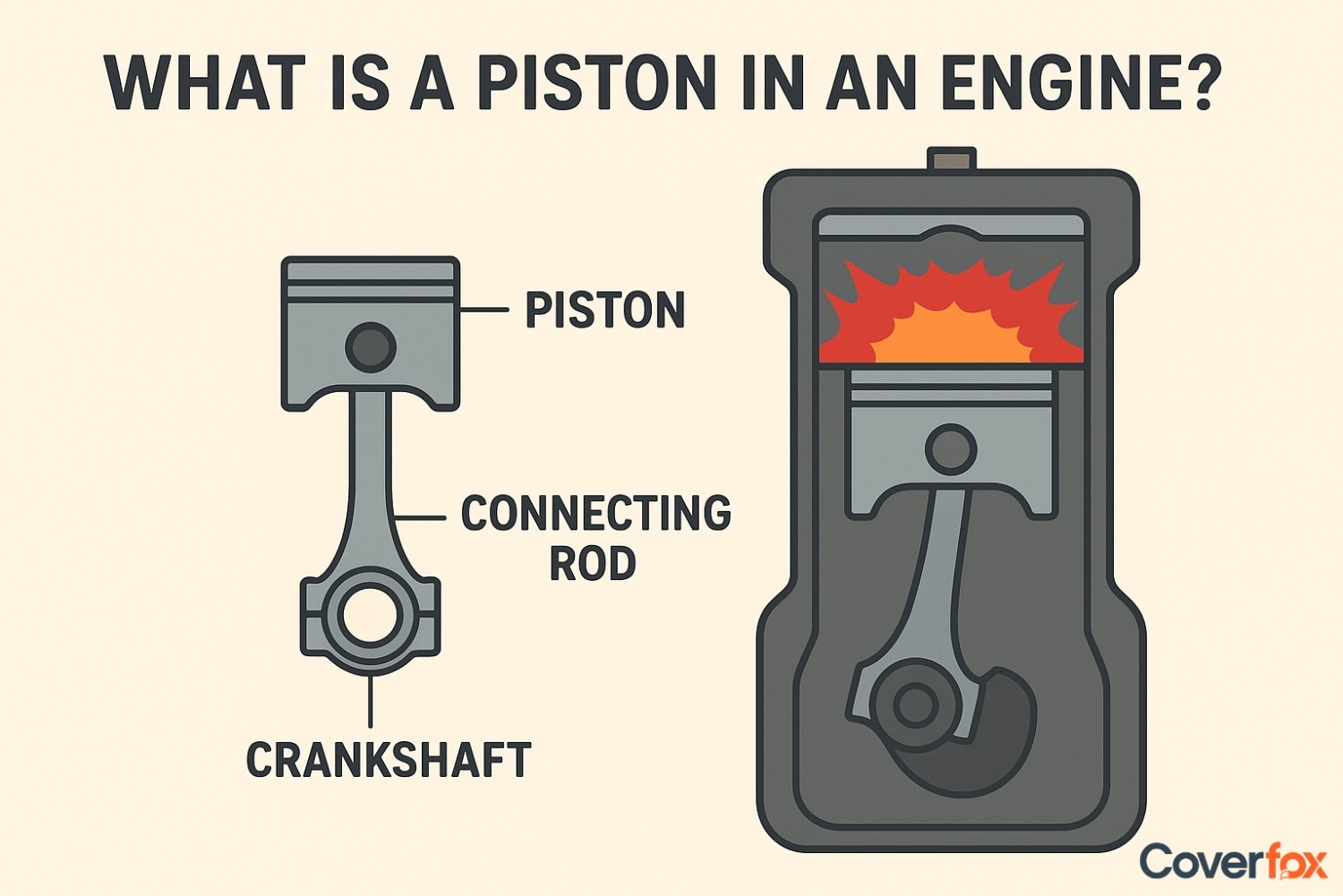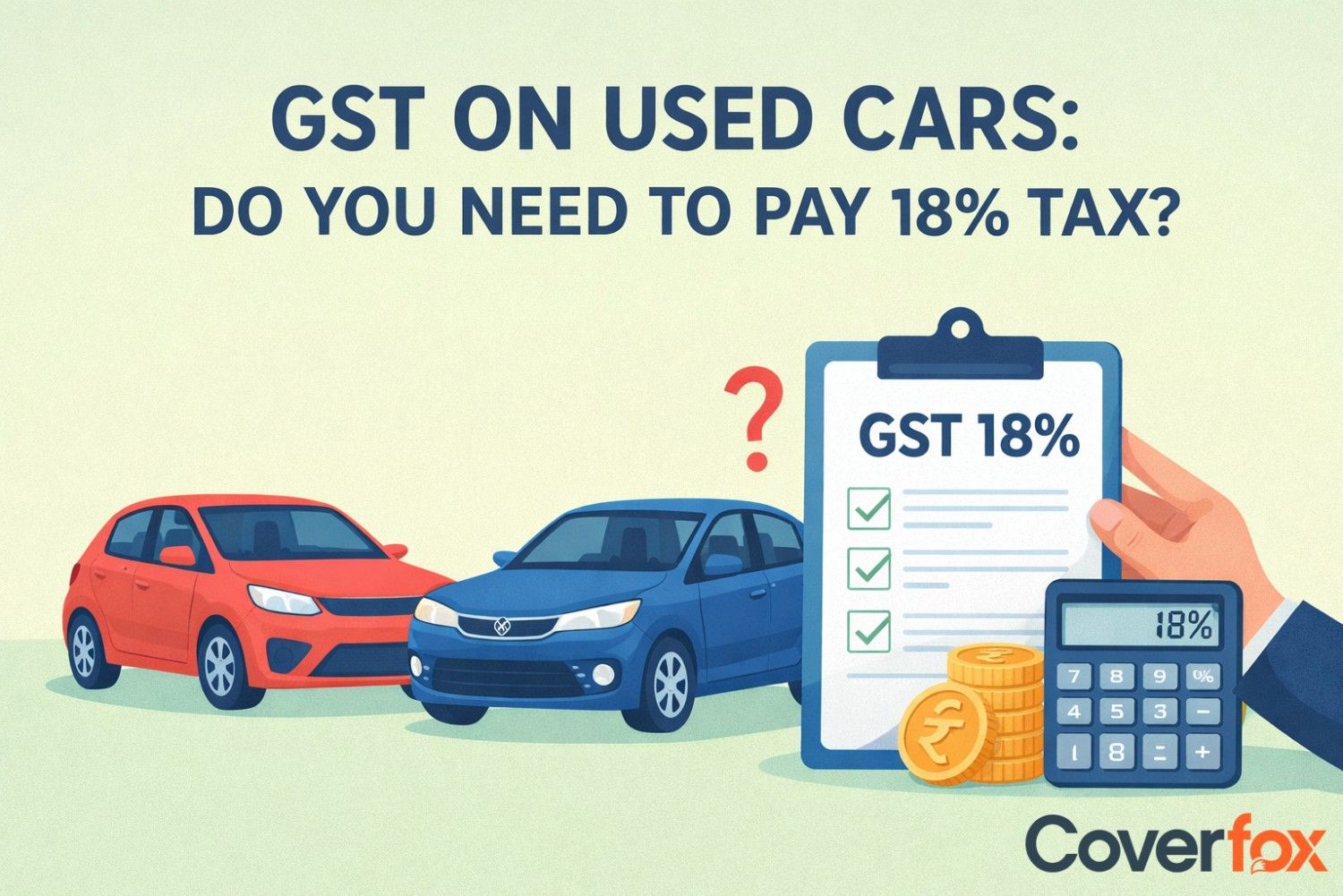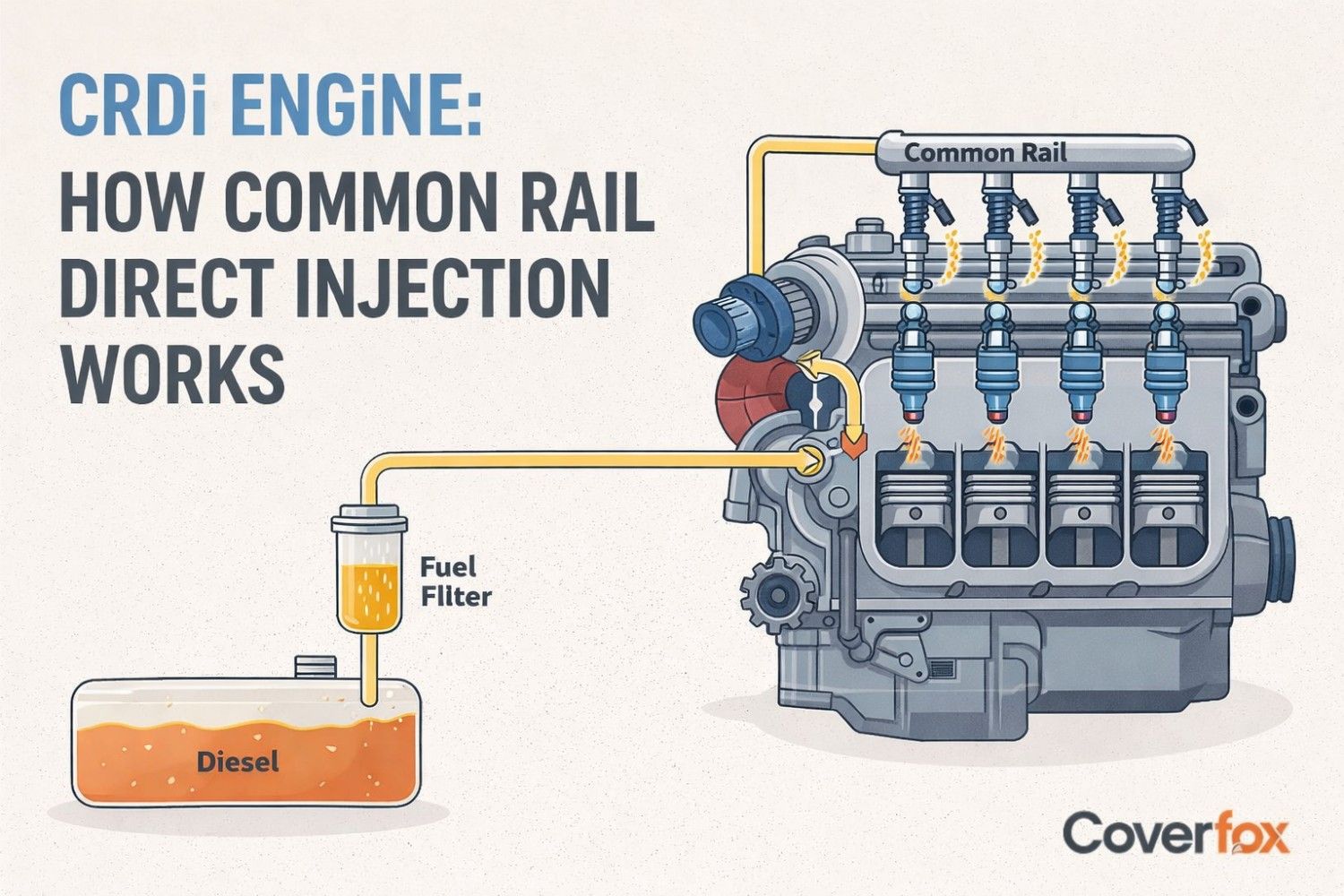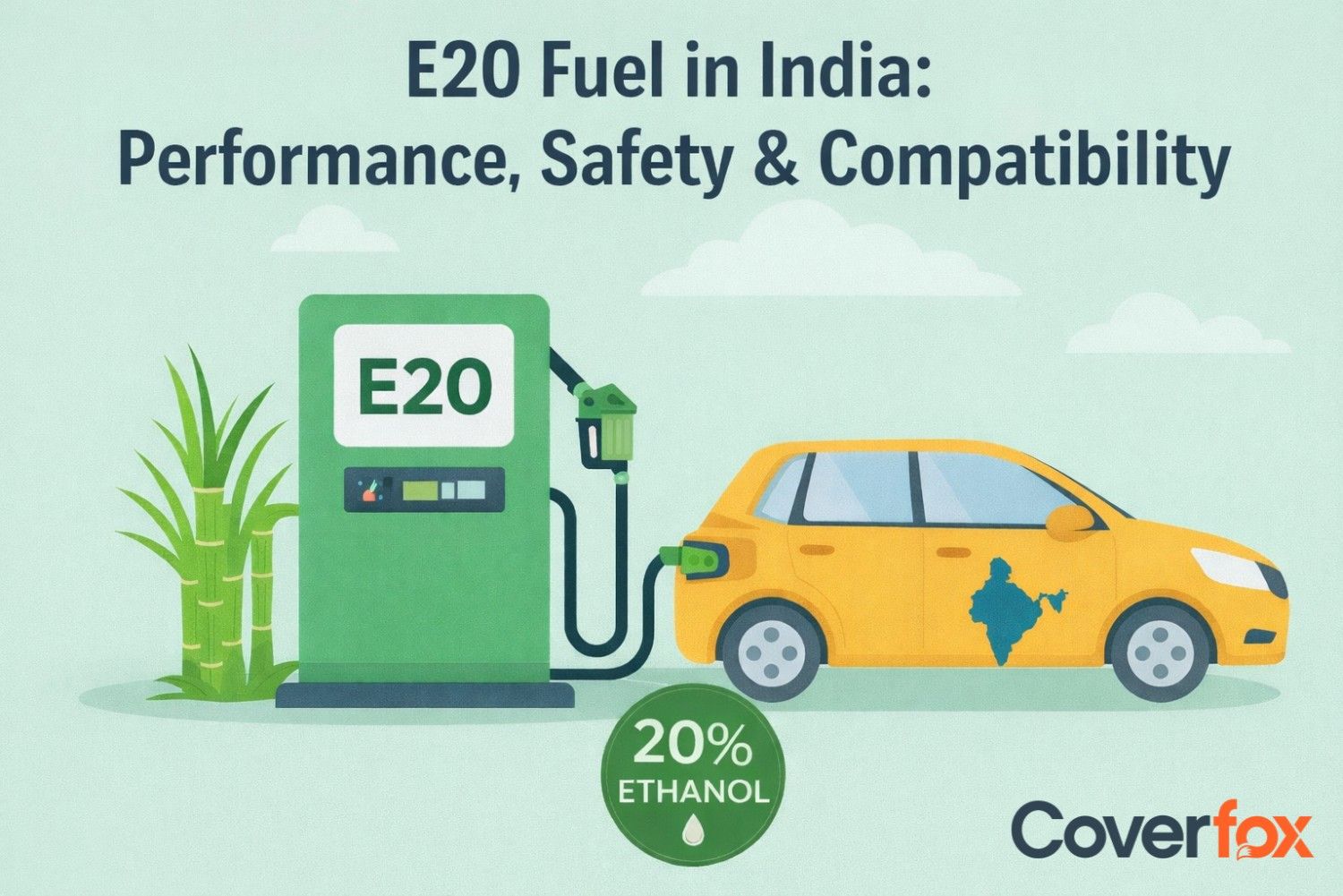Petrol is the driving force of most vehicles on Indian roads, and its quality is directly related to how efficiently engines perform.
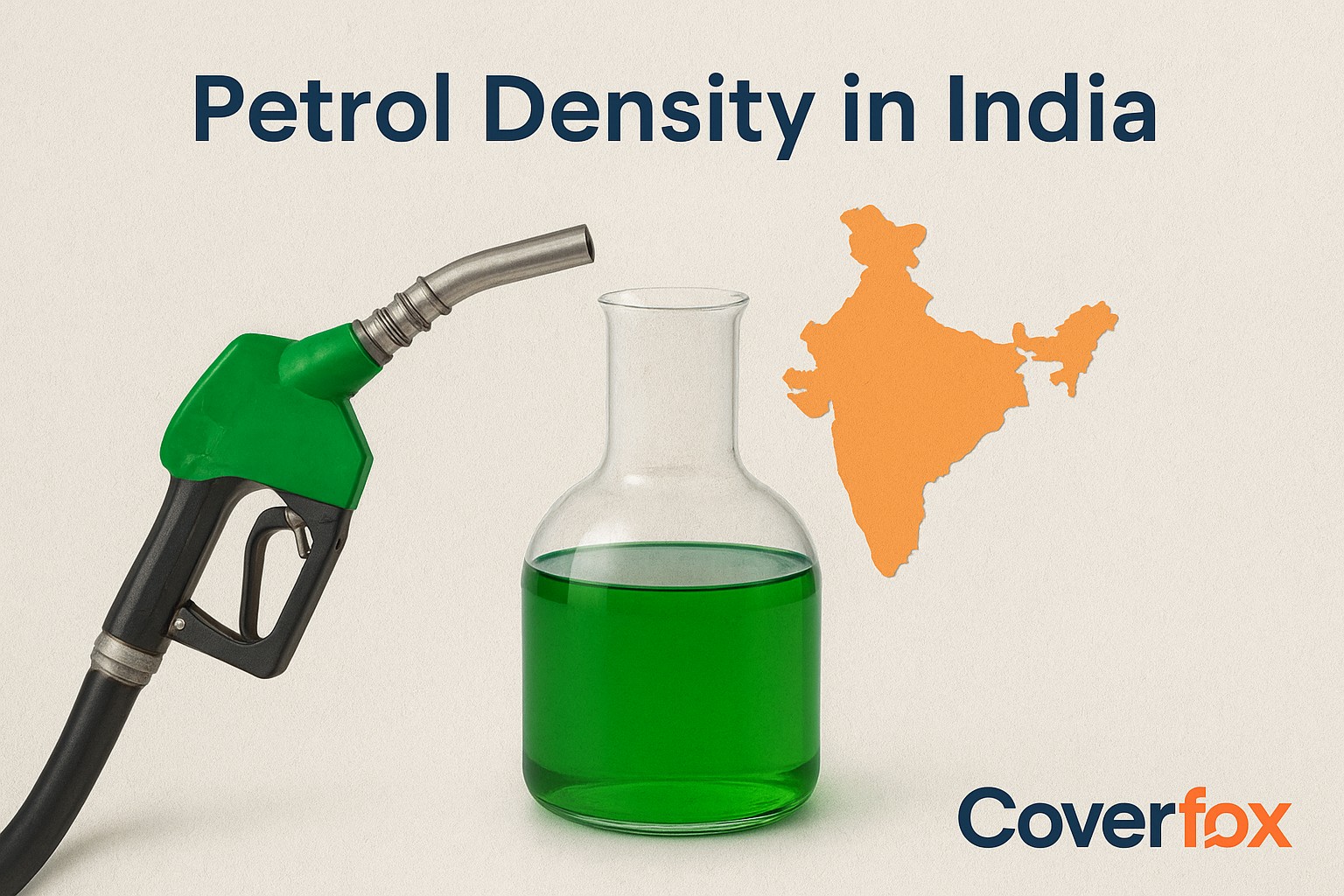
One of the essential measures of this quality is density, which not only affects the efficiency but also the overall functioning and emissions. Even minor changes in petrol density can make a significant difference in how your car or bike responds on the road. Though it seems technical, it eventually impacts your everyday driving costs and vehicle health. Also, just as fuel quality matters, having the right bike or car insurance is equally important to protect against sudden expenditures.
What Is Petrol Density?
Scientifically, density is the amount of mass packed into a given volume. It tells you how “heavy” a substance is for its size. Petrol density is measured in kilograms per cubic metre (kg/m³) or grams per cubic centimetre (g/cc). It is usually standardised at 15°C to ensure consistency. In India, the Bureau of Indian Standards (BIS) is the one that establishes the rules for petrol density to maintain fuel quality, and it also ensures that the vehicle engines run efficiently and safely.
You can understand this concept by the following example: If you pick up two identical bottles of liquid and one feels heavier, that’s because it’s denser. It has more mass packed compared to others into the same space. Petrol works similarly: denser petrol contains more fuel molecules per litre, which affects how efficiently it burns in your engine and influences its mileage and performance.
Why Does Petrol Density Matter?
Petrol density definitely performs a key role in controlling how smoothly your engine performs.. The denser the petrol, the more it contains fuel molecules per litre. Which means it can produce more energy during combustion. This can directly affect the power output, engine performance, and fuel efficiency. If there is a variation in density, whether too high or too low, it can reduce mileage, cause incomplete combustion, and even increase harmful emissions. It's important for fuel stations to maintain the correct petrol density, as it ensures accurate calibration of pumps and precise dispensing. Thus, customers can get the quality of fuel they want.
Petrol Density Standards in India
In India, the petrol density is managed by the Bureau of Indian Standards (BIS) and monitored by the Petroleum Planning and Analysis Cell (PPAC) to ensure consistent fuel quality and optimal vehicle functioning. Along with PPAC, oil companies and government agencies monitor the density of petrol and factors like temperature fluctuations across the country can influence the actual density at the pump.
- Typical petrol density in India: 730–770 kg/m³ at 15°C.
- Monitoring: Oil companies and government agencies check density at refineries, depots, and fuel stations using the calibrated instruments.
- Temperature impact: Density can vary slightly with regional climate differences. Hot summers or cool winters may affect petrol density.
- Ensures accurate fuel dispensing and consistent engine performance.
Factors Affecting Petrol Density
Petrol density is not constant; it changes depending on several factors that influence how “heavy” or “light” the fuel is. These variations can impact factors like engine performance, fuel efficiency, and emissions. Some of the other factors affecting fuel density are:
Temperature
Petrol expands in heat and contracts in cold, so its density decreases at higher temperatures and increases at lower temperatures, affecting fuel performance.
Ethanol Blending
Ethanol-blended fuels like E10 or E20 are less dense than pure petrol. Higher ethanol content slightly reduces energy per litre, which can impact mileage and combustion efficiency.
Storage and Handling
Poor storage at fuel stations, such as exposure to sunlight, heat, or water contamination, can change petrol density and degrade fuel quality.
Regional Climate Differences
Hotter regions may have lower-density petrol, while colder regions may see slightly higher-density fuel. Careful monitoring ensures consistency and optimal engine performance.
How Petrol Density Impacts Your Vehicle
The density of petrol directly influences your engine performance and its efficiency. Variations from the standard range can affect combustion, power delivery, mileage, emissions, and even long-term engine health.
Engine Combustion & Power
Denser petrol contains more fuel molecules per litre, which allows for more complete combustion. This improves power delivery and acceleration, helping your vehicle run smoothly.
Mileage & Running Costs
Petrol that is less dense delivers less energy per litre, reducing fuel efficiency. Over time, this can increase running costs as you need more fuel to cover the same distance.
Emissions & Environmental Impact
Fuel outside the ideal density range can burn incompletely, producing higher emissions and negatively affecting the environment.
Long-Term Engine Health
Consistently using petrol with non-standard density can cause engine knocking, carbon buildup, and wear on components, ultimately reducing engine lifespan.
How to Check Petrol Density as a Consumer
As petrol density affects engine performance and fuel efficiency, as a consumer, it’s important to know how to verify the quality of the fuel you’re buying. While petrol stations are responsible for maintaining proper standards, you also have the right to ensure you’re getting the right fuel. You can inspect the density of petrol by these methods:
Using Density Meters at Petrol Pumps
Some fuel stations have density meters to measure petrol density before dispensing. These devices ensure that the fuel meets BIS standards and is safe for your vehicle.
Consumer Rights
You have the right to request a density check at the fuel station if you suspect the fuel quality is off. Stations are obligated to comply with quality regulations and maintain transparency.
Practical Tips for Verifying Petrol Quality
Even without a density meter, you can watch for signs like unusually low mileage, inconsistent engine performance, or petrol that appears watery. Refuelling from trusted and well-maintained stations helps reduce the risk of getting substandard petrol.
Myths and Facts About Petrol Density
There’s a lot of misinformation about petrol density that can confuse vehicle owners. Understanding the science behind fuel density can help you separate myths from facts and make better choices for your vehicle.
Common Myths About Petrol Density
- Denser petrol always means better mileage
- All petrol sold in India has the same density
- You can judge petrol quality by its colour or smell
- Adding ethanol reduces petrol quality
Common Facts About Petrol Density
- While denser petrol contains more energy per litre, overall mileage also depends on engine tuning, driving style, and fuel quality. Denser fuel alone doesn’t guarantee better performance.
- Petrol density can vary slightly due to regional temperatures, ethanol blending, and storage conditions. BIS standards ensure it stays within a safe range, but minor variations are normal.
- Visual or olfactory cues are unreliable. Petrol may look and smell fine, but still have density or quality issues. Proper testing, like density meters at fuel stations, is the only accurate method.
- Ethanol-blended fuels (E10, E20) are designed to meet standards. While they are slightly less dense, engines calibrated for these blends run efficiently without harm.
Petrol Density and Vehicle Insurance
Fuel quality, like petrol density, plays a crucial role in your vehicle’s performance and longevity. While you might not immediately link it to motor insurance, using petrol outside the recommended standards can lead to engine issues or breakdowns, which may affect claims under certain vehicle insurance policies. Understanding this connection helps you to maintain your vehicle properly and ensures that your insurance coverage works as expected when you need it.
Conclusion
Petrol density plays a subtle but vital role in vehicle performance, fuel efficiency, and engine health. As a consumer, being aware of fuel quality helps you make informed choices that protect your vehicle and reduce running costs. Maintaining good vehicle health involves regular servicing, refuelling from trusted stations, and staying alert to petrol density and quality checks. By paying attention to these factors, you can ensure smoother rides, better mileage, and long-term reliability for your vehicle.
Read More:
Frequently Asked Questions
What is Petrol Density?
It is the mass of petrol per unit volume, which is usually measured in kg/m³ or g/cc.
What is the ideal petrol density range in India?
In India, the typical range is 730–770 kg/m³ at 15°C as per BIS standards.
How does petrol density affect my car’s mileage?
If the petrol is denser, it contains more energy per litre, which can improve mileage.
Can I personally check petrol density at a fuel station?
Yes, you can request a density check if the station has a density meter.
Does ethanol blending affect petrol density and performance?
Yes, higher ethanol content slightly reduces density and energy per litre, affecting the mileage of the vehicle.
Is low-density petrol harmful to my engine?
If you use low-density petrol consistently, it can reduce efficiency and cause engine wear.
Why is petrol density measured at 15°C?
15°C is a standard reference temperature to ensure consistency in measurements.
Does higher-density petrol mean better quality?
Not necessarily; quality depends on overall composition and not just density.
Can petrol density vary in different regions of India?
Yes, regional temperature and climate can slightly affect density.
